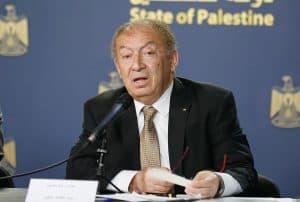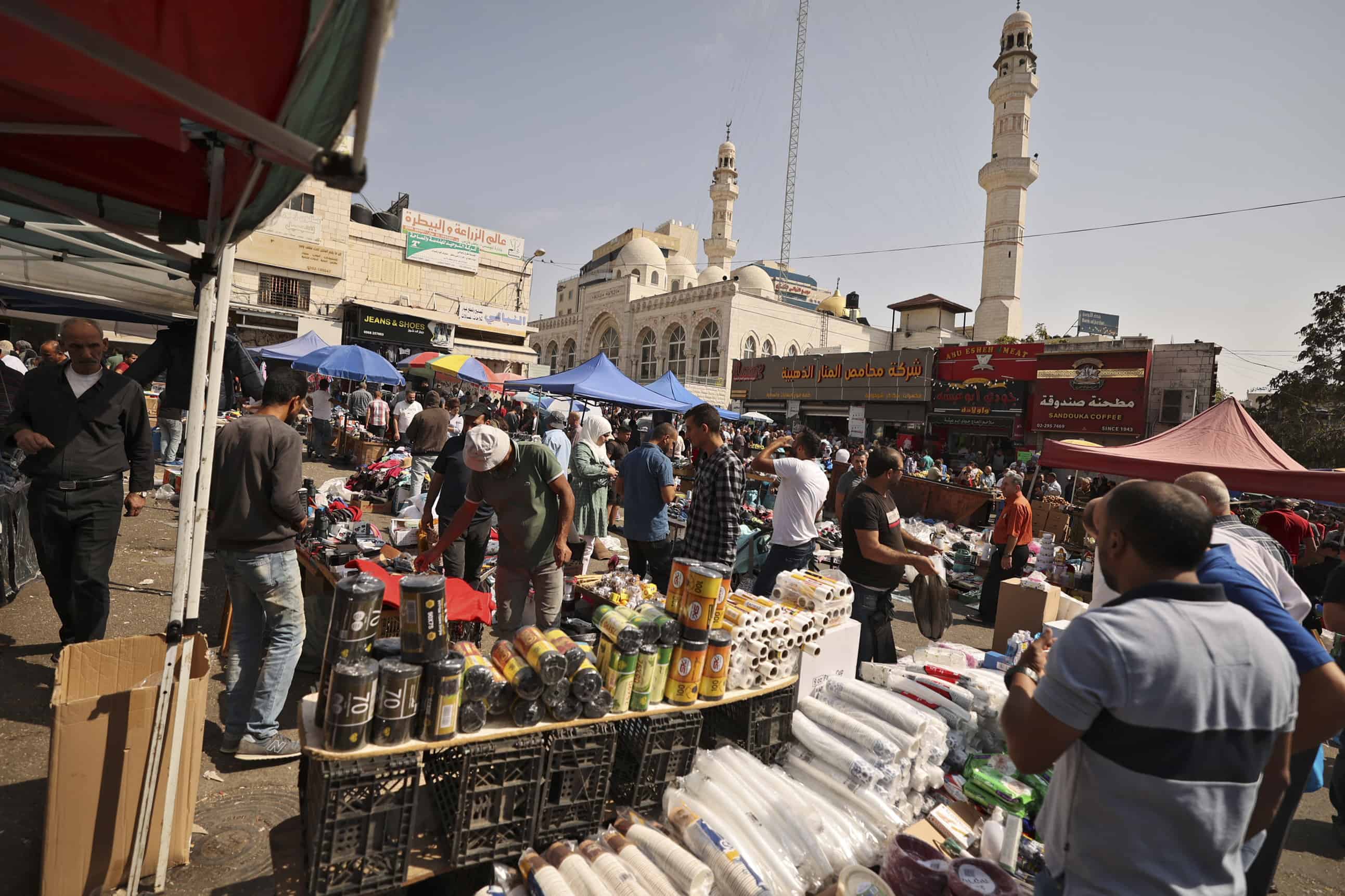Lacking the means to prop up an already faltering economy and stem steep price hikes if the Ukraine war continues, Khaled Osaily, the Palestinian Authority Economy Minister, is praying for peace.
“I pray to God to stop this crazy war,”Osaily told TRENDS during a phone interview from Ramallah. “We don’t know what will happen tomorrow.”
“We need to stop this war for human reasons and to stop it from causing worsening economic and social conditions,” he added.

Osaily said the PA’s predicaments are worse than those of established states. “We are under occupation. We don’t have a central bank or currency. We are unable to finance salaries.”
Since November, the PA, the largest employer in the West Bank, has only been able to pay eighty percent of the salaries of government employees. “And now the situation has become even worse. Of course the war will have an effect on our ability to pay salaries.” Osaily said.
The Palestinian Authority’s economic situation is, analysts say, even more vulnerable to shocks from the war than that of Egypt and certainly one of the most precarious in the MENA region.
A protracted continuation of the war could stoke strikes and demonstrations over price hikes and government salary cuts and move the PA towards the possibility of collapse unless it is rescued by Israel, the European Union or Arab countries, says Khalil Shikaki, director of the Ramallah-based Palestinian Center for Policy and Survey Research, one of the most trusted West Bank think tanks.
West Bank Palestinians depended on both Ukraine and Russia for wheat supplies and will also be very hard hit by rises in the price of oil. As it stands, per capita income for the West Bank and Gaza Strip is less than 3000 dollars per year, notes Osaily. “We will definitely suffer more than Europe,” he said.
“So far we are getting daily goods but I don’t know what will happen tomorrow,”Osaily added.
The PA has extremely limited means to step in and address the crisis in contrast to Israel and European countries. It survives in part by borrowing from private banks in light of a budget deficit that has swelled in recent years after foreign nations halted donations.
It currently gets no donations from the GCC governments, although Qatar funds the militant Islamic fundamentalist Hamas government in the Gaza Strip, the rival of the PA government in the West Bank run by President Mahmoud Abbas. He is already very unpopular for failing to achieve any tangible gains from Israel for his people, failing to hold elections and being surrounded by people perceived as corrupt. Heightened economic misery can only add to the unpopularity of his rule.
Israel, for its part, is withholding a significant amount of the tax revenues it collects on behalf of the PA under self-rule agreements on the grounds that the authority disburses stipends to families of those Israel considers as terrorists and murderers. The PA sees them as strugglers for freedom from occupation and terms the Israeli withholding policy “piracy.”
As the war drags on, decreasing salaries and rising prices are expected to stoke greater discontent among government workers.
The situation is expected to be even worse for low income Palestinian farmers who live outside the self-rule regions in areas of the West Bank that are under full Israeli control. Sheep herders in the Jordan Valley area of the West Bank told TRENDS that as a result of the war, the price of sheep feed has already risen by thirty percent and that they would have to sell off all or part of their herds if the war continues.
Within its considerable limitations, “we are trying to protect the poor” from the economic shock of the war, Osaily said. One way the PA has done this is to cancel the VAT on bread for the coming three months. “We are fixing the price of bread and will not allow any bakery to raise it. If they do we will take them to court,” Osaily said.
The PA is also seeking alternative supplies of wheat from Romania and Australia, Osaily said, adding that Canada has offered to help in this regard.
The PA has also eliminated taxes on oil and gasoline, thereby keeping the price steady for the moment. But analysts say this could change substantially as early as next month since the PA simply does not have the means to keep up with the expected price rise.
In Shikaki’s forecast “if the price of gas goes up, it will impact the price of transportation and a lot of things people need. No doubt things will become way worse, particularly during Ramadan when prices go up anyway. The rise will be humongous and there will be anger.”
“If the war continues, you have to ask how much destabilization there will be in the West Bank,” Shikaki said.
“It’s difficult to predict if this will lead to anything beyond strikes and demonstrations. Hopefully the war will end quickly and prices settle,” he said
Samir Abdullah, an economist and former PA minister of planning told TRENDS: “The picture is very, very bleak.”
Osaily says that so far the PA is facing this crisis alone. “No countries are helping us so far. It’s all on our own resources.”

